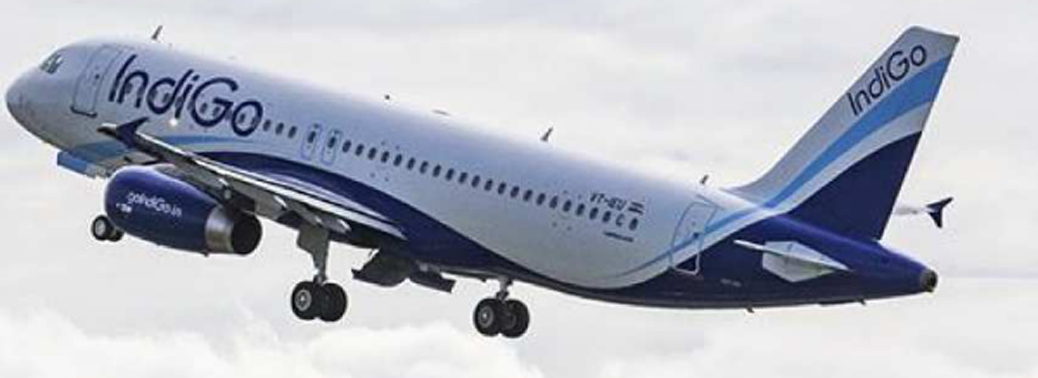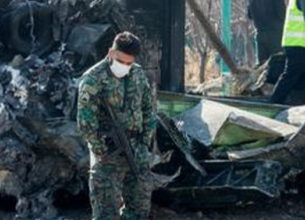THE AVIATION TROUBLE
28, Jan 2020

Prelims level : Infrastructure Road, Inland, Railway Aviation, Housing, Rural & Urban
Mains level : GS-III Infrastructure: Energy, Ports, Roads, Airports, Railways, etc
Context:
- Indian aviation industry is staring at a fresh crisis. Recently, low-cost carrier GoAir temporarily suspended some flights, as its A320neo planes are Facing Frequent Snags.
The on-going Crisis:
- The issue in the A320neo class planes had led to several groundings last year and this year.
- The Directorate General of Civil Aviation (DGCA) pressed the airlines to fix the issues soon.
- Both the engine manufacturer Pratt and Whitney and aircraft maker Airbus SE expressed their inability to deliver engines and aircraft on time, which means Go Air has no option but to truncate its operating fleet of planes.
- The problem is not confined to the short term.
- As many as 15% of passenger planes in India could be affected due to this, as leading airlines like Indigo, GoAir and SpiceJet have the same issue.
- Aviation experts say that frequent snags in Pratt and Whitney engines may not have easy and immediate fixes. Which means the problem is not likely to go away any time soon.
The Issues Plaguing Aviation Sector in India:
- Increase in Fuel Prices:
- Aviation turbine fuel (ATF) is one of the important sections of the industry.
- The Centre and the states pile on their taxes on ATF, which can go as high as 29%.
- ATF charges are vulnerable to currency movements and leads to high operating expenses—some 40% compared to 20% for Foreign Carriers.
- Rupee Depreciation:
- The rupee’s depreciation is hitting carriers hard as it did a few years ago.
- About 25-30% of their costs, excluding fuel, are dollar denominated—from aircraft lease rents and maintenance costs to ground handling and parking charges abroad.
- Excessive parking and Landing Charges:
- High Airport (aeronautical) Charges levied by Airport Authority of India.
- These charges payable at the International Airports are higher than those payable at the airports designated as Domestic Airports.
- As a result, the domestic airlines in India are incurring additional costs at the international designated airports without deriving any Extra Facilities.
- Fare Wars:
- Established Airlines are threatened by low cost carriers, which are eating up their market share.
- In order to consolidate their market share, top premium airlines were forced to reduce their ticket fares to around 15- 20 per cent, which reduces their profitability.
- Loads of Debt:
- Poor operational efficiency, steady losses in the wake of higher fuel costs and a weaker rupee leads to non-payment of debts.
- No airline company has been able to devise a credible currency policy to protect them against Sharp Currency Movements.
- Lack of Managerial Expertise:
- Indian aviation sector is struggling due to lack of managerial expert and expertise in the sector and lack of a regulator to Monitor the Industry
- Government policies limitations:
- The National civil aviation policy (NCAP) 2016’s regional connectivity scheme imposes ticket price caps, which also makes the airliners fly their aircrafts in Unprofitable Routes.
The International Civil Aviation Organization (ICAO):
- ICAO is a UN specialized agency, established by States in 1944 to manage the administration and governance of the Convention on International Civil Aviation (Chicago Convention).
Functions of ICAO:
- ICAO works with the Convention’s 193 Member States and industry groups to reach consensus on international civil aviation Standards Recommended Practices (SARPs) and policies.
- It supports creating a safe, efficient, secure, economically sustainable and environmentally responsible civil aviation sector.
- ICAO also coordinates assistance and capacity building for States in support of Numerous Aviation Development Objectives.
- It produces global plans to coordinate multilateral strategic progress for safety and air navigation.
- Monitors and audits States’ civil aviation oversight capabilities in the areas of safety and security.
Chicago Convention:
- Convention on International Civil Aviation (also known as Chicago Convention), was signed in 1944 by 52 States.
- ICAO came into being in 1947.
- In the same year, ICAO became a specialized agency of the United Nations linked to Economic and Social Council (ECOSOC).
- The Convention establishes rules of airspace, aircraft registration and safety, and details the rights of the signatories in relation to air travel.
- The Convention also exempts air fuels in transit from (Double) Taxation.







